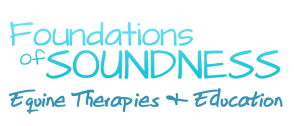Riding out with my husband, James, on a beautiful Sunday, his horse, Cagie, starts playing up – nothing out of the ordinary, a bit of head tossing, chomping on the bit, ‘come on, let’s go, I’m feeling fresh’. James rides on calmly, pushing him forward and grinning away, not a care in the world. I look on anxiously and ask him a question that’s been on my mind – what does he think Cagie is going to do when he starts behaving like this? James looks at me blankly, so I ask again. He has no idea what I’m talking about. I give him some of the examples that play on my mind far too frequently; he rears and goes over backwards, bolts and goes through an electric fence, bucks like a rodeo bronc etc etc. Still the blank look, ‘nothing’, he tells me, he thinks about absolutely nothing. He is happy to be out riding and he imagines Cagie is too, that Cagie is simply enjoying himself and eager to go. What a lucky man my husband is; no anxiety, no fear, no thoughts of the certain death that can eventuate from ‘head tossing’.
So why do so many of us let these thoughts cross our minds (saturate our minds!) whilst doing the thing we love most in the world? I’m now aware I’m not the only horse rider frustrated and restrained by her fears, though there were times when I thought I must be. Why do we let our passion, our dreams and the precious time spent with our horses be tainted by fear?
Having pondered these questions many times before I was eager to attend a seminar that a good friend (and one of the gutsiest riders I know!) organised on “Competition Nerves” with Corio Bay sports psychologist Stephen Rendall. She made an excellent point when inviting us – we all spend money and time on lessons, only to have it fall apart at the competition.
The psychologist took us through the integral differences between fear and anxiety and how the over thinking nature of the evolved human race often confuses the two. An example of fear is being trapped in a house fire – the fear is real and presented to you “in the moment”, you have to rely on your instincts to survive – flight, fight, freeze. Anxiety is being about to mount your horse at a competition and imagining (catastrophizing) that in the arena you will forget your dressage test, that on the cross country your horse will bolt, that in the practice arena your horse will get a fright and you’ll come off… Anxiety is a futuristic event, it’s not happening to you right now but your emotions, your mind and your body may be behaving like it is. It may cause you to be snappy and short tempered (guilty), feel stressed, scared or frustrated (guilty) or you may have not been able to eat for the last 24 hours (I wish). The cognitive, emotive and physical changes are different for everyone.
The trick is being able to recognise the differences between fear and anxiety. For us horse riders, it becomes hazy. For us there is the both the public judgement and fear of failure that can induce anxiety but also the involvement of real risk. Do you know one horse rider that doesn’t have a bad back, broken bones or at least one hell of a scary story to tell?
That’s when being able to manage the anxiety comes into play, you can attempt to block it out but all that will do is feed it. And we are sitting on an “anxiety barometer” – if we are not honest with our emotions and acknowledge them, usually our horses will for us. The psychologist gave us an exercise to practice at home twice a day, I can also see it being used in the float 10 minutes before you’re on! Basically, it was meditation – find a relaxing position and breathe deeply into your stomach, focusing on the rise and fall of your stomach or the breath passing over your lips, don’t try to stop your thoughts, simply watch them go by. The five minutes of group practice went faster than most of us had imagined it would; “watching my thoughts” is something a wise friend taught me years ago and I always find it very interesting and calming. To enhance this, the psychologist gave a great analogy – you are at a train station standing on a platform and trains keep rolling in, the doors open and you can board the train if you want to. It could be an aggressive train, a frightened train, a calm train; the train you choose to get on is ultimately your decision.
Being in the moment and watching my thoughts then making a conscious decision, rather than galloping away with them, are concepts that I’m now training on in the saddle. And I’m also smiling, because I believe your horse can feel you smile and that it makes all the difference.
Disabled and doubly neurodivergent human, former equine anatomist and bodyworker (no longer practicing due to Ehlers Danlos Syndrome complications), experienced equine advocate and educator, and budding disability advocate turning my sights on Australian Government policy and practice while elevating lived experience in research for horses and humans alike.
This blog is currently inactive but I occasionally check in on Facebook. Please check out the articles I keep it alive for and take something home to your horse ❤️
